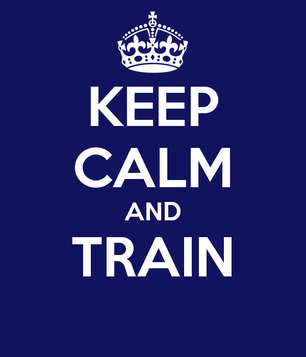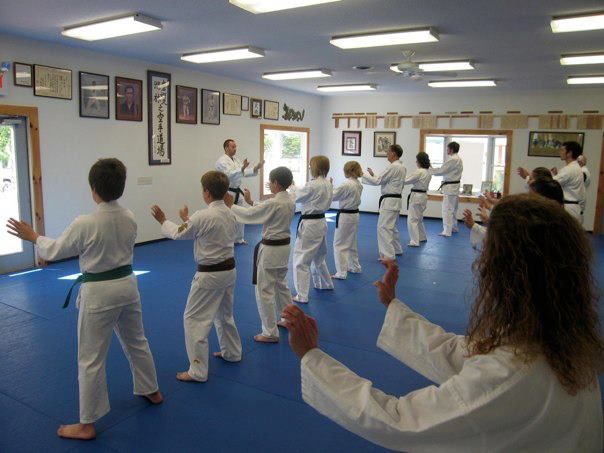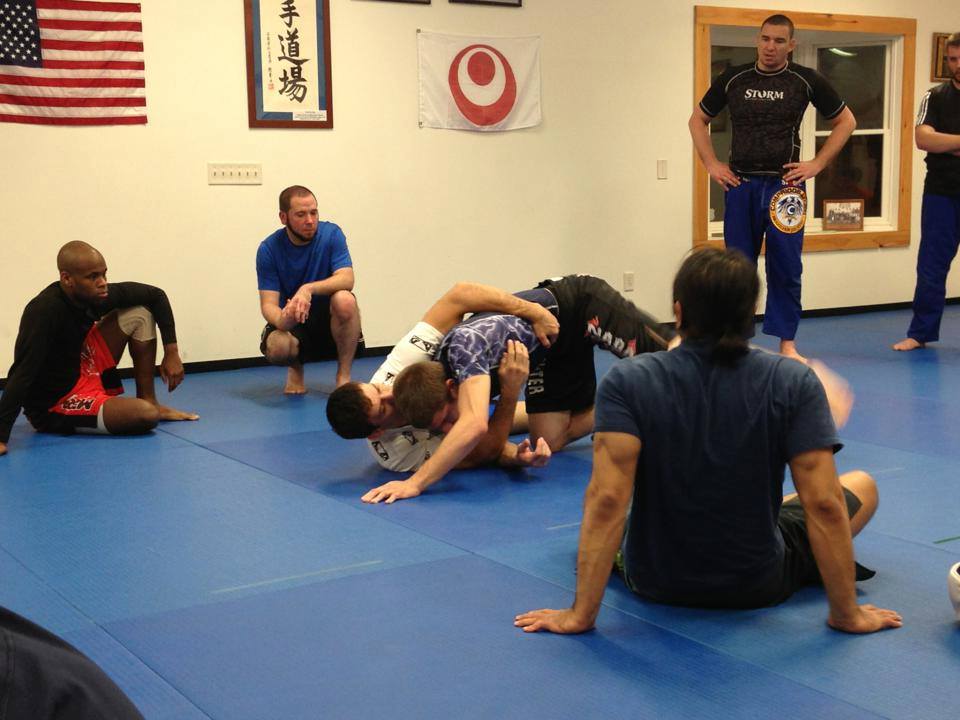
During the feudal period in Japan the warriors of the day, known as the Samurai, learned that having a strong and unyielding mind was crucial to their success in battle. Those who could stay focused and calm in battle succeeded, and those who buckled under pressure perished. Although most of us will never have to defend ourselves in a life and death confrontation, we can apply the principles that worked for the Samurai in our training, rank promotions, demonstrations or competition.
Being more calm, focused and stable can be learned in training. Essentially, when you step onto the mats you want to adopt a calm and positive attitude. Whatever exercises or drills you do, you deliberately practice being calm and focused. Even under the pressure of sparring or rolling, you do your best to stay totally calm and focused. Over time, this becomes your normal mode of operation. Eventually, you can bring this to all other aspects of your life!
Admittedly, this is easier said than done, and there are many ways that it can be sabotaged or even completely prevented. Some students can train for years without ever learning to really immerse themselves into their training and learn these valuable principles. Some students (especially children) can be so overwhelmed by the commitment, effort and social aspects of the martial arts that they never actually get started, in spite of wanting to do just that.
Here are some common pitfalls that can ruin your progress along the road to calmness:
Anxiety - Uncontrolled anxiety can shut down the ability to settle into a healthy mentality in training. This can be social anxiety, fear of failure, stress and anxiety about life, or even an anxiety disorder. Students who struggle with anxiety should make calmness and Fudoshin training a high priority in their practice. Although it may be especially challenging at first, these students stand to benefit the most from this aspect of martial arts training.
Distractibility - Students who are easily distracted will also have difficulty getting started with any of the mental aspects of training. Some students will be distracted in drilling techniques and strategies and only try to focus during sparring or rolling. But calmness and focus should be practiced consistently throughout all different aspects of training. Signs of distractibility can include constantly talking or joking, thinking about things other than the exercises being taught, letting emotions interfere with class, or taking too many water or bathroom breaks. Distractible students need to identify these patterns and eliminate them as soon as possible so that they can begin to make progress with their mental training.
Negativity - Students who are negative about training, fellow students, or instructors will also struggle with learning to be calm...or anything else. Trying to teach someone with this mentality can be like trying to program a computer with a broken keyboard. Their attitude will prevent the information from ever reaching them. Negativity towards other students or instructors will create unhealthy dynamics in the gym. Training with others in the martial arts requires trust and confidence in others. We all learn from one another in a constructive and positive environment. Negative students will not only ruin their own training, but can be toxic and corrupt others. Of course, every student is given the opportunity to learn and progress, but students who demonstrate a pattern of negativity will ultimately be asked to leave the gym.
Anger - Many people go through much of their lives angry. They take things that other people do or say too personally, and let their tempers boil over too quickly. Going through life angry or getting mad too easily will erode your quality of life, destroy personal relationships, and pose serious health risks over time. Being angry in a martial arts gym will certainly get in the way of progress and cause problems with fellow students and instructors. Students with uncontrollable anger will also eventually be asked to leave the dojo.
Ego - Students who think themselves better or smarter than everyone else in the dojo will likely never begin to learn the most important aspects of training. Sometimes these people will get good at pretending to minimize their own ego and even talk about that, but in the end it is only a misperceived accomplishment in their minds. Some instructors will actually teach a false “confidence” to their students, having them create a fake image of themselves to present to the world. This is especially bad if the student already struggled with an overblown ego and arrogance. But, this false confidence can easily fall apart under pressure. Real confidence is being calm and relaxed in any situation. This can only be gained by perseverance through challenging situations, real achievements, and methodically practicing the mental aspects of training.
Instability - Emotional instability is the opposite of Fudoshin. Students who suffer from this have a tendency to overdramatize things that happen in their life. This can be something they were born with, or a part of their personal culture. These students will be among those who stand to gain the most from real learning stability and calmness, but will also be most challenged to do that. These people need to do their best to practice the principles of Fudoshin in training, and eventually extend that to all aspects of their lives.
It may seem strange that activities that were born in war and self-defense are actually amazing for teaching calmness and stability, but the principle of Fudoshin can be trusted to work for you. So, every program at ZenQuest includes this training. This includes a calm approach to exercises, mindfulness in technical drills, coordinated and methodical breathing, and meditation practice. Although all of our classes including Jiu-jitsu, Muay Thai and even MMA training include these super important elements...our Okinawan Karate program has the most systematic and focused approach to this. Almost every Uechi-Ryu class includes mental exercises for this purpose, which can make an excellent compliment to any other art!
Mastering ’calmness’ can have incredible benefits in our daily lives like reducing our stress levels, making us more stable and focused, and helping us to think more clearly. This usually takes time, but with some guidance, it WILL happen! So, keep calm and TRAIN! See you on the mats.



 RSS Feed
RSS Feed